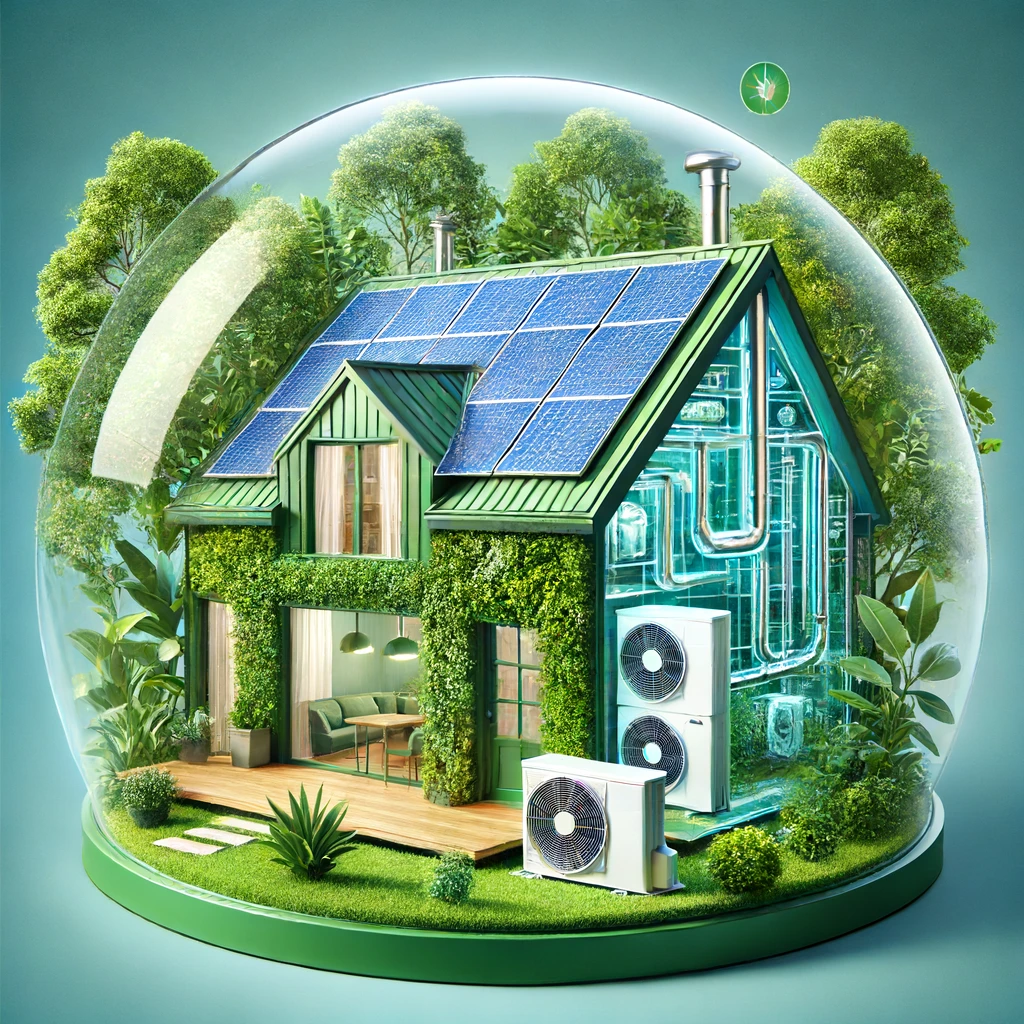Eco-Friendly HVAC Solutions for a Greener Home
Eco-Friendly HVAC Solutions for a Greener Home

As environmental concerns grow, many homeowners are seeking ways to reduce their carbon footprint and promote sustainability. One significant area where eco-friendly choices can make a difference is in heating, ventilation, and air conditioning (HVAC) systems. This article explores various eco-friendly HVAC solutions that can help create a greener home.
Energy-Efficient Units
High SEER-Rated Systems Seasonal Energy Efficiency Ratio (SEER) ratings measure the efficiency of cooling systems. Higher SEER ratings indicate greater energy efficiency. Modern HVAC units with high SEER ratings consume less energy to cool your home, reducing both your utility bills and environmental impact.
Variable-Speed HVAC Units Variable-speed units adjust their operating speed based on the cooling or heating demand. Unlike traditional single-speed systems that operate at full capacity regardless of the need, variable-speed systems optimize energy use, providing precise temperature control and reducing energy consumption.
Renewable Energy Integration
Solar-Powered HVAC Systems Solar-powered HVAC systems harness the sun’s energy to provide heating and cooling. Solar panels installed on your property generate electricity to power your HVAC system. This integration not only reduces your reliance on fossil fuels but also lowers your energy bills and carbon footprint.
Geothermal Heat Pumps Geothermal heat pumps use the stable temperatures of the earth to heat and cool your home. By tapping into this renewable energy source, geothermal systems are highly efficient and environmentally friendly. They offer significant energy savings and have a longer lifespan compared to traditional HVAC systems.
Sustainable Practices
Regular Maintenance for Efficiency Regular maintenance is crucial for keeping HVAC systems running efficiently. Clean filters, well-lubricated parts, and unobstructed airflow help maintain optimal performance. Schedule routine inspections and servicing to ensure your system operates at peak efficiency, reducing energy waste.
Proper Insulation and Sealing Effective insulation and sealing prevent energy loss, making your HVAC system more efficient. Properly insulated homes retain heat in winter and stay cool in summer, reducing the workload on your HVAC system. Sealing gaps and cracks in doors, windows, and ductwork further enhances energy efficiency.
Green Certifications and Incentives
Energy Star Certification Energy Star-certified HVAC systems meet strict energy efficiency guidelines set by the Environmental Protection Agency (EPA). These systems consume less energy and emit fewer greenhouse gases. Choosing Energy Star-certified products ensures you’re selecting eco-friendly options for your home.
Government Rebates and Incentives Many governments offer rebates and incentives for installing energy-efficient HVAC systems and renewable energy solutions. These programs can significantly offset the initial cost of upgrading to eco-friendly systems, making them more accessible to homeowners.
Adopting eco-friendly HVAC solutions is a practical and impactful way to contribute to a greener environment. From energy-efficient units and renewable energy integration to sustainable practices and green certifications, there are numerous options available to make your home more environmentally friendly. By choosing these solutions, you can enjoy a comfortable living space while reducing your carbon footprint and promoting sustainability. Embrace eco-friendly HVAC systems and practices to create a greener home for the future.
